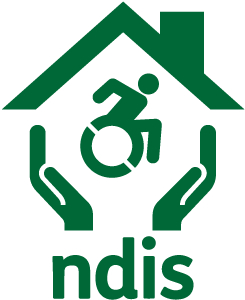New information about NDIS and housing
 Many people with disability find it difficult to live in affordable and accessible housing. Accessible housing is often more expensive and people with disability often have less money than most Australians. Accessible housing is also often harder to find. This means people with disability struggle to have a choice in where they live. This has meant young people with disability often live in nursing homes, or older people with disability live with their parents and families when they do not want to.
Many people with disability find it difficult to live in affordable and accessible housing. Accessible housing is often more expensive and people with disability often have less money than most Australians. Accessible housing is also often harder to find. This means people with disability struggle to have a choice in where they live. This has meant young people with disability often live in nursing homes, or older people with disability live with their parents and families when they do not want to.
One of the most common questions people with disability and their families have about the NDIS is to do with housing support. People with disability want certainty about their housing and are interested to know how the NDIS will improve their choice and control about housing.
When the Commonwealth, New South Wales and Victorian governments recently signed the bilateral agreements for the full rollout of the NDIS, some more information about disability housing support was included in the documents. This housing news is the first new information on how the NDIS might help solve the housing problems of people with disability.
However, the housing information is very ‘high-level’ and complicated. They mainly describe the six guidelines that will be used to decide what housing supports the NDIS will provide. More detail will be available when the housing strategy is released in December 2015.
What is known now is that governments and the NDIS are thinking about what supports will be provided to people with disability who require assistance in regard to housing. However, it is important to understand that because every adult in Australia needs to pay for their own housing (usually rent or a mortgage), the NDIS will not be responsible for funding these items.
The NDIS is thinking about providing some supports that help people with disability to live independently in the community and will fund home modifications for accessibility in a variety of housing types. It also seems that it might be possible that extra support will be available where a person requires very highly specialised housing and support.
More detail about the housing strategy will be released in December 2015. Disability Loop will let all our readers know about the detailed strategy once it is available.
You can read the documents from with the high-level information here:

